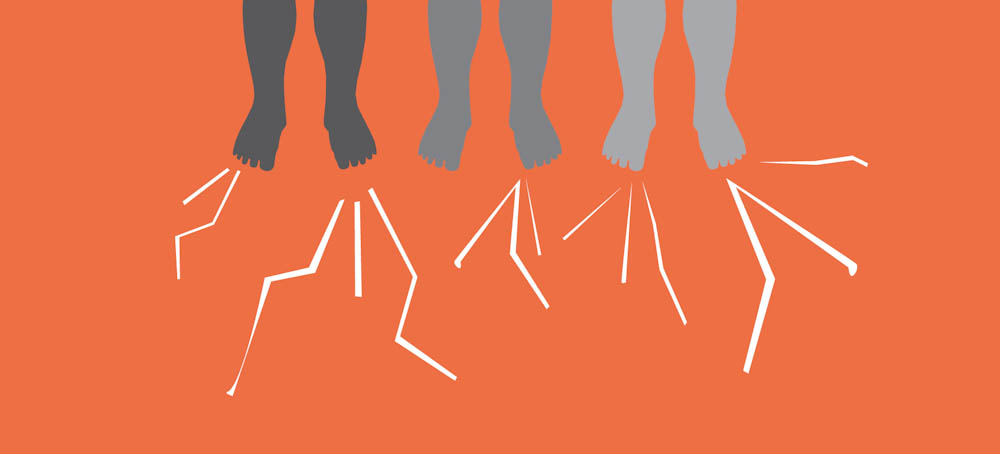Chemotherapy-induced peripheral neuropathy (CIPN), a condition that is a result of nerve damage caused by cancer treatment, can be a frustrating side effect patients face. People with CIPN can experience tingling, numbness and pain in the arms, hands, legs and feet.
Although there is no clear CIPN treatment that can improve nerve damage, a combination of vitamins, supplements, pain medications, adaptive techniques and complementary therapies may help reduce symptoms.
Clare Sullivan, MPH, BSN, OCN, clinical program manager for Patient Education at Dana-Farber, recently answered questions about neuropathy during a live text chat. Sullivan covered safety, prevention, symptom management, and more. An excerpt of the chat is included below and a full transcript is available in Dana-Farber’s Health Library.

Q: What are the risk factors for developing neuropathy?
A: Specific types of chemotherapy, radiation, and surgery can cause damage to nerves that can lead to neuropathy. Patients with pre-existing conditions, such as diabetes or peripheral vascular disease, may already have neuropathy as a result of these diseases. Prior to treatment, it is important that all patients talk with their oncologists about any diseases or conditions they may have.
Q: Is there anything patients can do to prevent neuropathy?
A: It is important to be attentive to your symptoms and to report any concerns to your doctor right away. Your cancer team will be able to create a treatment plan that will protect you from injury and possibly prevent your symptoms from worsening.
Q: Aside from medications, what are some tips for managing the numbness, tingling or pain patients experience with neuropathy?
A: Physical therapy is one of the most effective treatments for neuropathy – it can help with balance, strength and safety. Occupational therapy can also be beneficial and can help patients improve fine motor skills like buttoning shirts. In both cases, it is very important for patients to advocate for themselves by asking their doctor or care team for a referral to a physical and/or occupational therapist.
In addition, low-impact exercise like swimming and biking, as well as acupuncture, relaxation techniques, meditation, and guided imagery exercises can all help with the side effects of neuropathy.
Remember, there are lots more options than just taking a pain pill.
Q: Is CIPN permanent? Is there a cure?
A: Unfortunately, there is no clear cure or treatment that will repair nerve damage. Neuropathy symptoms will usually dissipate over time, but the amount of time it takes depends on the treatment and dose. Sometimes it takes a few months after treatment. In most cases, CIPN will go away, but in some rare cases, it is permanent.
